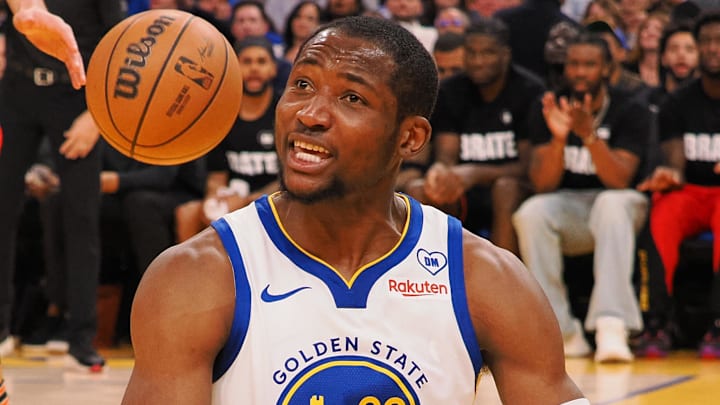In case you haven’t heard, Jonathan Kuminga and the Golden State Warriors are playing an excruciatingly long game of “Who will blink first?” that we all know, at some point, is going to end with the dissolution of their relationship.
Phrased another way: The Miami Heat clearly dodged disaster.
Previous interest in the 22-year-old never made a ton of sense. The scoring upside is undeniable, but he doesn’t guarantee much else—particularly on defense—or shoot well enough to be considered an intuitive fit alongside Bam Adebayo and/or Kel’el Ware.
Contentious negotiations between the Warriors and Kuminga are now driving home just how much he didn’t make sense in Miami. The team and its fans are free to exhale accordingly.
Landing Kuminga would have cost the Heat
According to the latest reporting from ESPN’s Anthony Slater and Ramona Shelburne, Golden State is now offering Kuminga a three-year, $75.2 million deal, with a team option on the final season. That comes out to over $48 million in guaranteed money over the first two years. Kuminga so far isn’t biting.
Dangling a similar price point would have been problematic for the Heat. Sure, talks between them and Kuminga wouldn’t be steeped in as much animosity. But giving him well north of $20 million per year would have complicated their payroll. They have already taken questionable strides to duck the luxury tax.
Kuminga’s contract demands stood to make things worse. For starters, the Base Year Compensation rule would have added layers of complexity to who the Heat sent out to get him. Especially when we know the Warriors wouldn’t have wanted to re-acquire Andrew Wiggins.
This says nothing of the assets he’d have cost Miami. The Warriors were asking for a small ransom earlier this offseason. Had the Heat acquiesced, they’d be saddled with an expensive question mark whose arrival ate into trade assets they’re supposed to be saving for the acquisition of a true star.
Miami didn’t have time to wait
Let’s also not forget that landing Kuminga would have precluded Miami from getting Powell—a cheaper, and frankly, better player who is a cleaner fit for the offense, and didn’t require the team to surrender any real assets.
The Kuminga sign-and-trade would not have been subject to the same delay he and the Warriors are working through right now. It also clearly wasn’t coming together overnight. Remember, the Heat would have been negotiating with two separate parties: Golden State, and Kuminga himself. This number could have climbed to three or four, depending on how many other teams needed to join the transaction to push it through.
Even if Miami could have figured out a way to squeeze Powell onto its books, the Los Angeles Clippers and Utah Jazz were not about to wait days, weeks, or months for Pat Riley and company to go about the rest of their business. Time was particularly of the essence for the Clippers, who were setting themselves up to land Bradley Beal.
Perhaps Kuminga would have popped as a member of the Heat. It was not assured, but it could have happened. We’ll never know.
Relative to the headache acquiring him undeniably became, as well as what else Miami has since done, missing out on Kuminga isn’t just okay. It is the best possible outcome.
